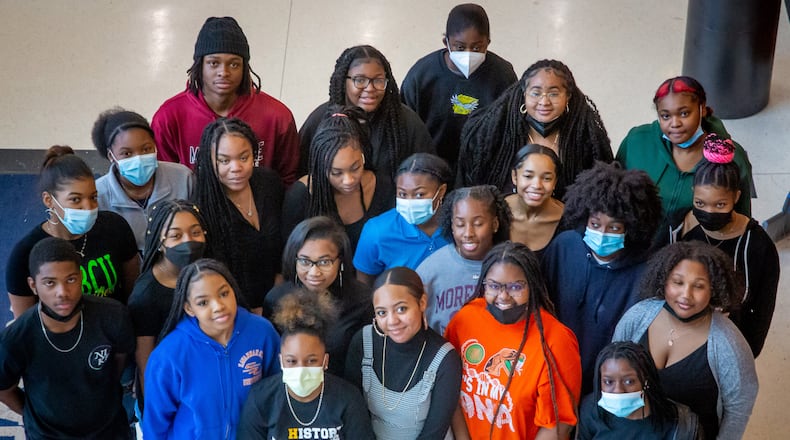Ashley M. Stewart is an educational psychologist, researcher and assistant professor at Georgia State University.
Her focus is the racialized experiences of young people from historically marginalized backgrounds in various social settings, including online and in person. Her research shows that in discussions of race and diversity, students of color are generally the experts.
In this guest column, Stewart warns a new state law limiting classroom discussions of race and racism will only make teachers more uncomfortable and ill-equipped to have these discussions, ultimately placing more labor onto students of color, particularly Black students.
By Ashley M. Stewart
In March 2021, just two months after the insurrection at our nation’s Capitol, I interviewed Black high school students about how their schools and teachers were approaching discussions of the incident and other racial justice issues in class.
One student, Lima, said that her teachers weren’t talking about race or racial justice at all and that she wanted to be talking about issues affecting her community. She went on to say that she wanted her teacher and other students in her class to know “Every black person is important.” The lack of discussions about critical issues affecting her community led Lima to believe that those in her academic community did not consider such issues or Black people important.
Across the country, legislation on diversity and race-related discussions and curriculum is being passed. Georgia House Bill 1084, also known as the divisive concepts bill, went into effect on July 1, 2022. According to The Atlanta Journal-Constitution’s Legislative Navigator, this controversial bill aims to “prevent the use of and reliance upon curricula or training programs which act upon, promote, or encourage certain concepts, with exceptions; to provide for related matters; to repeal conflicting laws; and for other purposes.”
Credit: Contributed
Credit: Contributed
Much of the national conversations around laws and policies that ban diversity or race-related dialogues in academic spaces include those who argue that these policies erase our nation’s history and/or ascribe blame for our nation’s ills to one group of people, leaving some students to feel guilty, anxious and distressed.
Decades of education research suggests that U.S. teachers generally shy away from talking about race in class due to feelings of fear and discomfort. This is not surprising given the fact 79% of the teacher workforce is white. However, this does not mean that these conversations are not happening. They are happening, and in many cases, students of color are leading these conversations.
Given that the percentage of students of color in U.S. public schools is steadily increasing, students are often the experts in these conversations, for better or for worse. More specifically, nearly 60% of Georgia public school students are classified as members of racially minoritized groups. HB 1084 will uniquely impact the experience of students of color as they will continue to bring their communities, experiences and racial histories with them into their classrooms every day, despite legislation that bans discussions about them.
Classrooms should be a space where students’ experiences and identities are affirmed. Experimental studies have shown that affirming students’ values in the classroom improves educational outcomes, particularly for students from marginalized communities. Policies that prohibit dialogues about race, diversity, and social justice will only make teachers and educators more uncomfortable and ill-equipped to handle these conversations when they inevitably arise, ultimately leaving all students more vulnerable to feelings of angst and distress.
As students return to school this month, parents, educators and policymakers should consider that students have access to information at their fingertips. It is the work of the adults around them to help them make sense of and think critically about the information to which they are exposed. In a time of endless technological advancements, the proliferation of digital social movements, misinformation and viral videos of racial violence, schools should be safe havens where even the most marginalized students’ histories and experiences are not only acknowledged but honored.
Until that is the standard, students of color risk entering into academic spaces where they don’t feel “important.”
About the Author
The Latest
Featured



